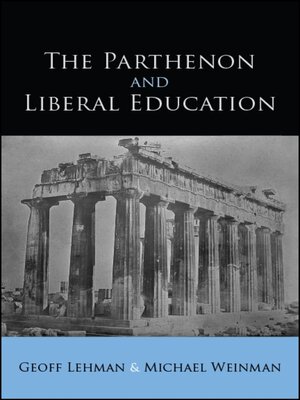
Sign up to save your library
With an OverDrive account, you can save your favorite libraries for at-a-glance information about availability. Find out more about OverDrive accounts.
Find this title in Libby, the library reading app by OverDrive.



Search for a digital library with this title
Title found at these libraries:
| Library Name | Distance |
|---|---|
| Loading... |
Discusses the importance of the early history of Greek mathematics to education and civic life through a study of the Parthenon and dialogues of Plato.
The Parthenon and Liberal Education seeks to restore the study of mathematics to its original place of prominence in the liberal arts. To build this case, Geoff Lehman and Michael Weinman turn to Philolaus, a near contemporary of Socrates. The authors demonstrate the influence of his work involving number theory, astronomy, and harmonics on Plato's Republic and Timaeus, and outline its resonance with the program of study in the early Academy and with the architecture of the Parthenon. Lehman and Weinman argue that the Parthenon can be seen as the foremost embodiment of the practical working through of mathematical knowledge in its time, serving as a mediator between the early reception of Ancient Near-Eastern mathematical ideas and their integration into Greek thought as a form of liberal education, as the latter came to be defined by Plato and his followers. With its Doric architecture characterized by symmetria (commensurability) and harmonia (harmony; joining together), concepts explored contemporaneously by Philolaus, the Parthenon engages dialectical thought in ways that are of enduring relevance for the project of liberal education.







